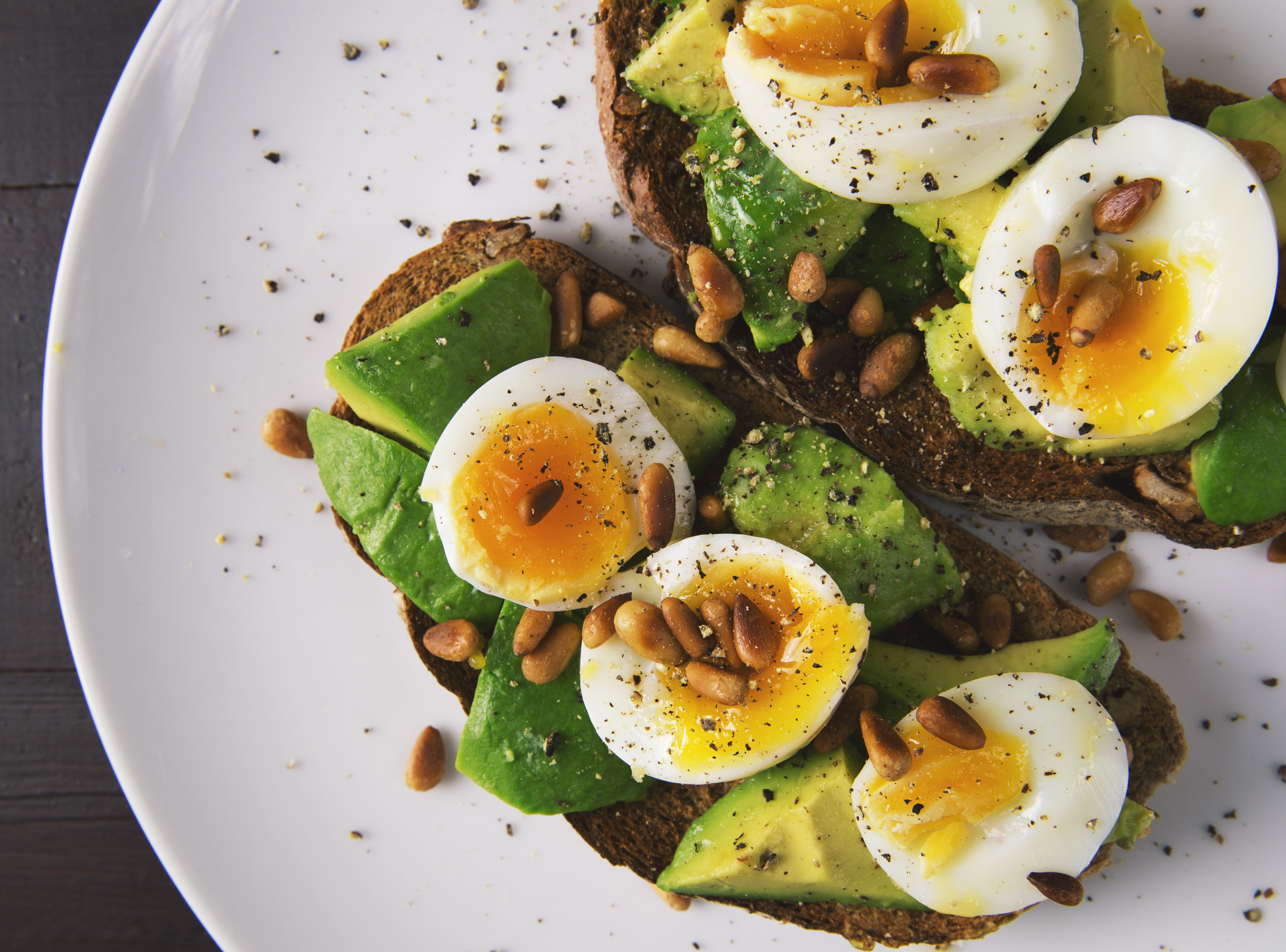
Do you have a hard time-fighting depression? Maybe you are looking for foods that will help boost your mood. Here is a list of foods that can help fight depression. Some of these are common while others might be new to you, but they all have the same goal: making life easier by helping people feel better!
Table of Contents
Eat more fresh fruits and vegetables.
This is a no-brainer. Eating more fruits and veggies can help boost your energy, improve your mood, lower the risk of various diseases, increase weight loss efforts (especially if you are trying to lose belly fat), etc. Everything good in life comes from eating fresh produce!
Eat these foods: dark leafy greens, cruciferous vegetables, citrus fruits, berries, apples, and other tart fruits. If you’re not a fan of eating produce raw or simply don’t have time to cook every day, consider making fresh fruit and vegetable juices or smoothies. This is an easy way to consume more nutrients in a shorter amount of time.
Eat more dark leafy greens.
Dark leafy greens tend to be rich in Vitamin A and Vitamin K, which can help boost mood and energy levels. Some of the best options include spinach, kale, romaine lettuce, swiss chard, mustard greens, and collard greens. The recommended daily allowance for adults is 400 grams, which can be easily met if you include a dark leafy green in every meal.
Eat more cruciferous vegetables.
Cruciferous vegetables like broccoli, cauliflower, and Brussels sprouts are rich in supplements C, folate, and antioxidants – all of which have mood-boosting properties. They also tend to be low in calories and high in fiber, which can help you feel full longer.
Eat citrus fruits

Citrus fruits like oranges, grapefruits, lemons, limes, and tangerines contain a lot of supplements C – an antioxidant that has been proven to improve mood and reduce stress levels. They also tend to be low in calories and high in fiber, which can help you feel full longer.
Eat berries.
Berries contain a wide range of antioxidants that can reduce inflammation and improve mood by reducing stress levels. They are also packed with supplements C and tend to be low in calories while being very filling due to their volume (i.e., they take up a lot of space in your stomach).
Eat apples.
Apples tend to be low in calories and high in fiber, which can help you feel full longer while also making it easier for your body to fight off common infections like colds and the flu (due to the immune system-boosting effects of supplements C and antioxidants). They are also a great source of fiber, which can help reduce cholesterol levels and regulate blood sugar.
Eat other tart fruits.
Pomegranate seeds are a great example of another fruit that is high in antioxidants (specifically ellagic acid) – an antioxidant that has been shown to improve mood by reducing stress levels. Pomegranates also contain supplements C, folate, and potassium – all of which can reduce stress levels.
Enjoy or eat more dark chocolate.
Dark chocolate contains a large number of antioxidants that help protect the body from aging while also improving mood by reducing anxiety levels (due to its effects on serotonin). It is also rich in Vitamin C, iron, magnesium, zinc, copper, and fiber – all of which can improve mood.
Eat more lean meats, poultry, fish (wild-caught salmon), eggs (especially egg whites), beans/legumes (including soy products like tofu or edamame), low-fat dairy products, whole grains, nuts & seeds (like almonds and walnuts)
Lean meats, poultry, fish (wild-caught salmon), eggs (especially egg whites), beans/legumes (including soy products like tofu or edamame), low-fat dairy products, whole grains, nuts & seeds (like almonds and walnuts) are all great sources of Vitamin B12 – a nutrient that can help reduce stress levels.
Eat less processed food.
Processed foods are often high in unhealthy fats, sugar, and salt – all of which can have negative effects on mood. In contrast, whole grains, lean meats, poultry, fish (wild-caught salmon), eggs (especially egg whites), beans/legumes (including soy products like tofu or edamame), low-fat dairy products, and nuts & seeds (like almonds and walnuts) can help reduce stress levels by providing the body with Vitamin B12.
Drink green tea (lowers levels of cortisol)
Cortisol is a hormone that is released in response to stress. It can have negative effects on mood, energy levels, and food cravings. Green tea has been shown to help lower cortisol levels, which can improve mood and reduce the likelihood of experiencing symptoms of depression.
In addition to following the tips listed above, it’s also important to get at least 20 minutes of sunlight per day.
Sunlight has been proven to improve mood by increasing serotonin levels, which can reduce anxiety and stress. It also helps regulate sleep cycles (by signaling to the body that it is time for bed). Additionally, exposure to ultraviolet B radiation from the sun’s rays causes Vitamin D production in the skin, which is important for overall health and well-being.
So, make sure to get outside for at least 20 minutes each day (preferably in the morning or early afternoon) and enjoy some of your favorite mood-boosting foods! 🙂
Practice mindful eating (take time to enjoy your food without distractions)
Mindful eating is an important part of reducing stress levels, improving mood, and controlling food cravings. It involves taking the time to enjoy your food (rather than rushing through meals). To practice mindful eating, try setting aside 20 minutes at each meal for family or friends – this will help you slow down and focus on what’s happening in the present moment.
Additionally, avoid distractions (like watching TV or using your phone) while eating. This will help you focus on the food and the flavors, which can improve your overall experience. Lastly, make sure to chew your food thoroughly – this will help you digest it better and allow your body to absorb more of the nutrients.
What food is a natural antidepressant?
Foods that are high in omega fatty acids, such as salmon and walnuts, are natural antidepressants. These foods help to increase the levels of serotonin in the brain. Serotonin is a neurotransmitter that is responsible for mood regulation. Increasing the levels of serotonin can help to improve mood and reduce symptoms of depression.
what is the best Mediterranean diet for depression?
There is no one-size-fits-all answer to this question, as the best Mediterranean diet for depression may vary depending on the person’s individual dietary needs and preferences. However, some of the most commonly recommended foods for depression include:
- Fresh fruits and vegetables: These are a great source of antioxidants, vitamins, and minerals, all of which can help to boost mood and improve overall health.
- Whole grains: Consuming whole grains instead of processed foods can help to regulate blood glucose levels and provide lasting energy. This can be especially helpful for those struggling with depression, as low energy levels are often a symptom of the condition.
- Healthy fats: Some sources of good fats include olive oil, avocados, and fatty fish. These provide the body with essential vitamins and minerals that it needs to function properly.
- Lean protein: Protein can help balance hormones as well as regulate mood swings by stabilizing blood glucose levels over time.
What are the foods that are good for your mental health?
Some of the best foods for mental health include:
Dark leafy greens: Greens like kale, spinach, and Swiss chard are high in antioxidants and minerals like magnesium, which can help to improve mood.
Berries: Berries are a great source of antioxidants, which can help protect the brain from damage caused by free radicals.
Omega-rich foods: Foods that are high in omega fatty acids, like salmon and walnuts, can help to improve mood by increasing serotonin levels.
You don’t have to eat all of these foods every day – mix and match depending on what sounds good to you! 🙂 Remember, it’s important to focus on whole foods instead of processed items.
What is a healthy breakfast for depression?
Breakfast can be an important part of treating and preventing depression, as it provides the body with energy to start the day off right. Some examples of healthy breakfasts that fight depression include:
Oatmeal with blueberries and almonds: Oats are high in fiber and antioxidants, which can help to improve mood. Blueberries are also a good source of vitamin C, which can boost the immune system.
Egg white omelet: Eggs are a good source of protein, B vitamins, and zinc – all of which are essential for maintaining mental health. Omelets made with egg whites provide a lean source of protein without the added fat or calories.
Soy yogurt topped with fresh fruit: Yogurt is high in probiotics, which can help to promote healthy gut bacteria and improve overall mood levels. Fresh fruit provides important phytonutrients that are essential for cellular health as well as brain function.
What foods should you avoid if you have depression?
There are a few things you should avoid if you have depression. Foods that are high in sugar or caffeine can aggravate your symptoms, so try to avoid them. Also, try to limit your intake of alcohol and processed foods. These foods can interfere with your mood and make it harder for you to recover from depression.
Instead, focus on eating nutritious foods that can help improve your mood. Foods that are high in omega-three fatty acids, such as salmon and walnuts, can help boost your mood and protect against depression. Antioxidant-rich fruits and vegetables can also help fight inflammation and improve your mood.
So if you’re looking for ways to improve your mood, try adding some healthy foods to your diet. These foods can help fight depression and improve your general health.
What is the main cause of major depression?
There is no one-size-fits-all answer to this question, as the root causes of depression can be different for each individual. However, some of the most common causes of major depression include genetics, life changes or stressors, and imbalances in certain neurotransmitters in the brain.
Can blood sugar levels affect mood?
There is a very tight link between blood glucose level and mood. When we eat food, the body breaks it down into glucose (a simple form of carbohydrate). Glucose can fuel our cells and brain, allowing us to think clearly and concentrate on the tasks at hand. If there isn’t enough glucose available in the system, these abilities will suffer considerably.
What is a healthy diet?
A healthy menu means eating all of your recommended daily servings and not skipping meals. Eating smaller portions throughout the day is usually better than a few large meals, as this helps keep blood glucose levels stable and prevent overeating. This also prevents weight gain from snacking on high-calorie foods between regular meal times! A study found that those with symptoms of depression and who had a healthy diet reported greater mood improvement than those with bad diets.
Are omega 3 fatty acids good for depression?
There is evidence that omega-three cholesterol acids can help with depression. Omega-three fatty acids are found in fish oils, nuts, and seeds. Some people may also need to take a supplement to get enough of these fatty acids. Eating foods rich in omega-three fatty acids can improve moods and decrease symptoms of depression.
what are protein-rich foods?
Foods high in protein help to stabilize blood glucose levels and provide a steady source of energy. They also trigger the release of serotonin, which can improve mood. Some good protein-rich foods to eat when you’re feeling down include chicken, turkey, beef, pork, lamb, fish, eggs, dairy products, legumes, nuts, seeds, and beans.
Can Diet reverse depression?
Depression is a serious mental disorder that causes negative moods and affects someone’s thinking, behavior, feelings, and physical well-being. It is one of the most common mental disorders in the United States. Depression can be caused by different factors such as genetics, chemical imbalances, traumatic life events, or chronic stress. Some people may experience a major depressive episode once in their lifetime, while others may have one or more recurrences.
Eating healthy and nutritious foods is very important for people who suffer from mental health problems such as anxiety and depression. It’s crucial to eat a balanced diet including lean proteins, complex carbohydrates, good fats, fiber, and lots of fruits and vegetables. Eating a well-balanced diet can help improve the symptoms of depression by keeping blood sugar at stable levels throughout the day, which helps control mood swings.
Many studies have shown that some foods are particularly helpful in fighting depression because they contain certain compounds with antidepressant properties such as niacin, folate, omega-fatty acids, and magnesium. Here are some of the best foods to eat if you’re struggling with depression:
Foods high in niacin include beef, poultry, fish, peanuts, and sunflower seeds. Niacin helps support serotonin production in the brain, which is a key neurotransmitter associated with mood regulation.







